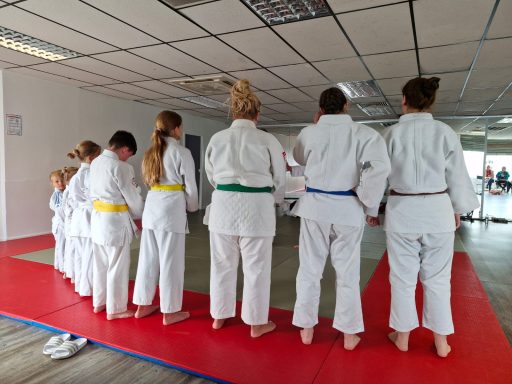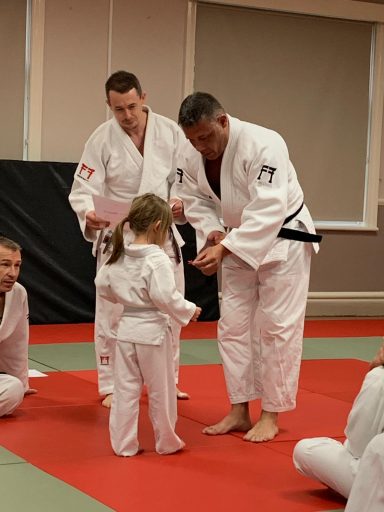
Gradings
Each student is an individual
Grading in judo is an essential process that helps practitioners assess their skills and progress within the martial art.
Each step, level, "kyu" or "dan" rank, represents a specific set of competencies that a judoka is able to demonstrate.
The grading system not only motivates students to improve but also provides clear benchmarks for their development in both theory and practical application.
The theoretical aspect of judo grading encompasses the understanding of techniques, principles, and the philosophy behind the art and sport.
Judokas are often required to study the history of judo, the rules of competition, and the etiquette associated with the practice. This knowledge is crucial as it lays the foundation for a deeper appreciation of the art and its values.
Practical skills are assessed during grading examinations, where students demonstrate their proficiency in various techniques, including throws, holds, and transitions.
Instructors evaluate the judoka's ability to execute these techniques correctly and effectively, ensuring they can apply their knowledge in a live setting. This hands-on component is vital as it reflects a student's readiness to advance to the next level.
Demonstration plays a significant role in the grading process, as students often perform techniques in front of instructors. This not only showcases their skills but also their ability to communicate and teach techniques to others. A successful demonstration requires confidence, clarity, and precision, all of which are essential qualities for advancing in judo.
Some more history
Photos shown are from past and present memebers and are not the current team
©Copyright. All rights reserved.
We need your consent to load the translations
We use a third-party service to translate the website content that may collect data about your activity. Please review the details in the privacy policy and accept the service to view the translations.






